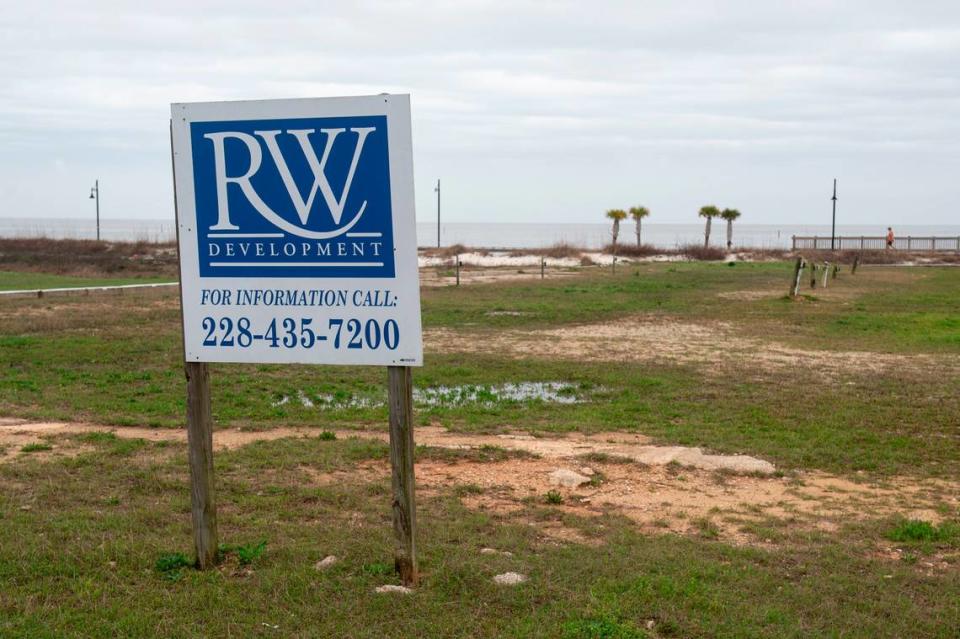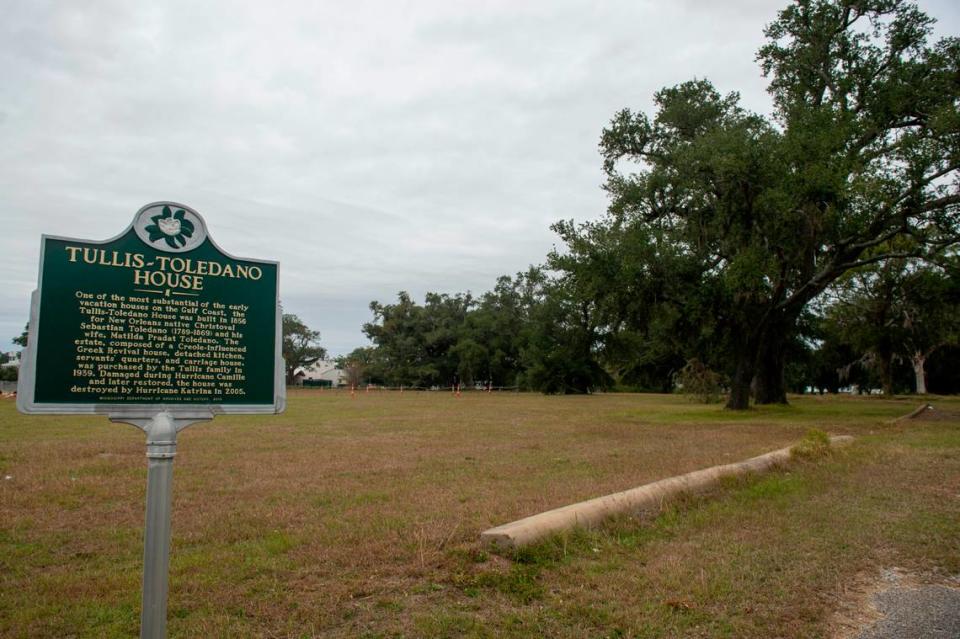Proposed law hands MS Coast casinos a monopoly, critics say. How would it affect Biloxi?
Some property owners could lose their land and planned casinos would be jettisoned under legislation that has gained broad support among lawmakers and gives the state more control over the Coast’s waterfront, several Coast attorneys say.
“This bill may be the most radical change in property law of any kind since Mississippi became a state in 1817,” said Gulfport attorney Virgil Gillespie, one of Mississippi’s foremost experts on Coast tidelands laws. The laws govern property subject to the ebb and flow of the tides on the Mississippi Sound and coastal bays.
“It’s just too overreaching and troublesome,” Gillespie added. “This bill will keep hundreds of lawyers busy for at least 10 years.”
Several Coast attorneys who represent local governments included Gillespie’s remarks in a memo they drafted on the new bill and recently sent to key legislators. The bill makes sweeping changes to current law and upends state Supreme Court decisions, says the memo drafted by city of Biloxi attorney Peter Abide, Harrison County Board of Supervisors attorney Tim Holleman and Jim Simpson, an attorney who has represented the city of Long Beach and served for 14 years in the state Legislature.
Negative changes the attorneys say the bill includes:
Stifling competition the Coast’s 12 existing casinos could face by prohibiting public leases for gambling or gambling-related activities adjacent to the sand beach, where casinos in Biloxi, Gulfport and Bay St. Louis now operate.
Allowing the state to claim ownership of waterfront property that has been in private hands for decades or more.
Forcing local governments into state leases they don’t need on waterfront property that they control.
Sen. Mike Thompson of Pass Christian, a co-sponsor of the Senate’s legislation, said the bill is intended to bring stability to the casino market and create a uniform framework for local governments to operate their harbors and build waterfront amenities such as piers.
Sen. David Blount, the Gaming Commission chairman who introduced the bill, also says it is intended to create “a stable business environment” for the casino market. He acknowledged state leaders were taken aback when the Gaming Commission recently voted to approve a casino in Biloxi across from the sand beach, based on a waterfront property lease with the city and Harrison County.
Under the new law, all casinos would need tidelands leases from the Secretary of State’s Office. Casinos must have a connection to the water in order to build on land, a state law passed in 2005 so casinos could move off the water after Hurricane Katrina. Blount also said all existing casinos support the bill.
“I sent multiple drafts of the bill to every casino operator on the Coast to get their input . . . “ Blount elaborated in an email. “This is an important issue and they are directly affected.”
Although local governments also would be directly affected, Coast leaders said they were asked to weigh in on the bill only after they started objecting to some of its provisions.

Would proposed law kill Biloxi casino development?
Tidelands, including the 26-mile sand beach, are owned by the public and held in trust by the Secretary of State’s Office. Currently, various state laws also give cities the right to use and lease out tidelands, including property in their harbors.
Although the secretary of state sued to stop it, the Supreme Court ruled in March 2023 that the city of Biloxi has the right to lease waterfront property at the foot of Veterans Avenue, which the city owns, to RW Development. RW leased the property to build a pier and, more importantly, tie its property across Highway 90 to the waterfront.
The last straw for state officials, both sides agree, came when the Mississippi Gaming Commission decided in December to approve a casino site for RW Development based on the waterfront lease.
Blount says casinos that have already received site approval from the Gaming Commission will not be affected by the new law.
But RW attorney Michael Cavanaugh of Biloxi disagrees. He said more than one provision in the law will prevent RW’s development. RW is singled out, he said, in a provision that says site approval can’t be extended beyond the original expiration date for any casino approved before Dec. 31.
A lawsuit that existing casinos have filed to stop RW’s development could well be decided after site approval expires in December 2026, Cavanaugh said.
One sentence added to the bill would resolve the issue, he said: “None of the provisions of this bill shall apply to any entity that received site approval as of Dec. 31, 2023.” But that sentence hasn’t been added.

A second Biloxi casino site jeopardized
The bill definitely kills plans for a new casino that would compete with the established casinos in East Biloxi. That’s because the proposed law says the secretary of state can’t lease land on or adjacent to the sand beach for gaming purposes.
While nobody has proposed a casino directly on the beach, one is being planned across the highway on city property where historic Tullis-Toledano Manor was located before Katrina.
The Tullis developers have an option to lease waterfront property across the beach highway from John Aldrich. His family once operated famed Fisherman’s Wharf restaurant there and also leased land to defunct Lady Luck Casino, which sat on the water in the 1990s.
The secretary of state is currently suing Aldrich over ownership of the property. While a chancery judge ruled in Aldrich’s favor, Secretary of State Michael Watson appealed the decision to the State Supreme Court, which is expected to rule any time on the case.
The Aldrich land is not unlike other properties in East Biloxi where dredged material, along with oyster shells from seafood factories, built solid ground on what had been water bottoms. The proposed Senate bill now defines those filled lands as state property.
However, Sen. Blount says the bill doesn’t change the rights of private landowners.
But there’s another provision in the bill that kills the potential for a casino tied to the Aldrich property. The new law does not allow casinos adjacent to the sand beach, where several Coast casinos already operate. The Aldrich property sits next to the sand beach.
“It appears that this bill was done as a means of protecting the market,” said Luke Lenzi, one of the potential developers of the Tullis property. “It has a monopolizing effect whether that was the intent or not.”
Supporters of the bill point out that the Coast has 17 approved casino sites that have never been developed and say the gambling market is saturated.
Lenzi said that developers have invested $2 million in the Tullis property and have every intention of moving forward.
Former state Sen. Tommy Gollott of Biloxi, who was instrumental in legalizing casino gambling, said the Legislature studied areas with casinos and realized Mississippi would be better off with “a free market approach.” Where government limited casino licenses, he said in a recent letter to legislators, operators sat on their profits rather than investing in improvements, leading to stagnation.
“For the government to continue its success,” he wrote, “Laws written by and for the existing casinos should be avoided at all costs.”
Tullis hotel-casino planned for Biloxi. But the $300 million development is in jeopardy

